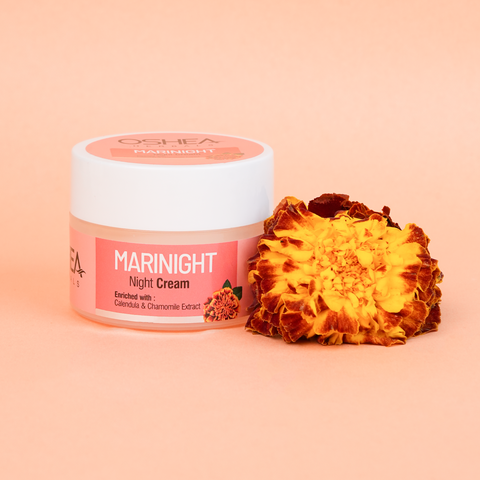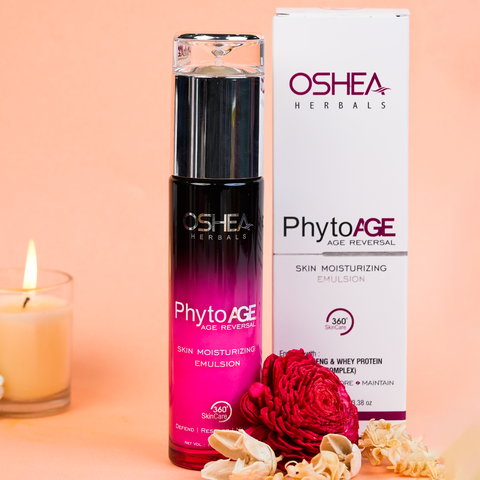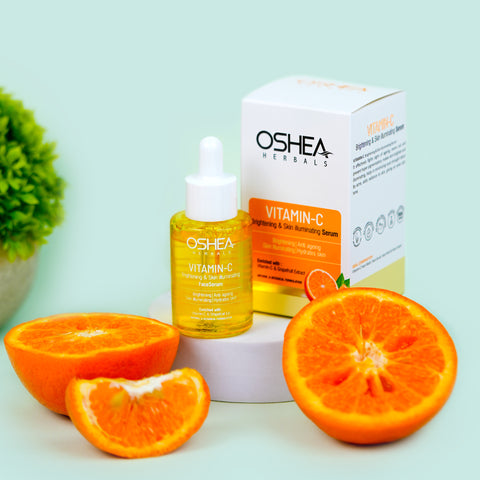Choosing The Best: Night Cream vs. Moisturiser vs. Serum
Introduction
The market is brimming with numerous skin care products. Hence, it is no surprise that so many people are confused about what’s best for their skin.
Do you suffer from dry skin? You must be looking for products that will hydrate your skin! But which one will you choose? Moisturisers, night creams, and serums all serve the same purpose. So, how will you understand which one’s perfect for your skin?
Let us end the debate of night cream vs. moisturiser vs. serum once and for all with the help of this blog! Continue reading to find how they serve similar purposes but are intrinsically different from each other.
What Is A Night Cream?
Our skin suffers throughout the day which is why a night cream is formulated in such a way that it works throughout the night to repair and compensate for the skin damage caused during the day.
The benefits of night creams include increasing the production of collagen, preventing the premature ageing of the skin, hydrating and rejuvenating it, and nourishing dry spots.
Also Read: Top 15 Summer Makeup Tips And Beauty Secrets
What Are Moisturisers?
A night cream is extremely light and poses no discomfort even if you let it stay overnight. However, moisturisers are quite thicker than night creams because they are required to form a strong and protective barrier on your skin.
Moisturisers lock in the moisture of your skin while also shielding it from the UV rays of the sun which can not only cause dry skin but can also lead to serious skin conditions.
What Are Serums?
There are several differences between moisturisers and serums. While the former is thick and oily, the latter is a smooth and light formulation that can be easily absorbed by the skin. A moisturiser protects against pollution and the sun.
However, the primary function of a serum is to focus on specific problem areas of the skin and heal them. Serums are extremely effective against acne, age spots, skin pigmentation, etc.
Also Read: 13 Beauty Benefits Of Using Ice Cubes On Face
Night Cream vs. Moisturiser vs. Serum: Which Is The Best?
1: Why Choose A Night Cream?
With progressing age, our skin gradually reduces the production of collagen. This causes the skin to become weak and thin giving rise to wrinkles and age spots. The heavy pollution and intense rays of the sun only make it worse.
However, night creams like the Marinight Night Cream from Oshea Herbals are infused with an anti-ageing ingredient called retinol which induces the natural production of collagen, strengthens and repairs the skin, and gradually reduces any signs of premature ageing.

Another ingredient called hyaluronic acid is present in night creams which hydrate and rejuvenate your skin overnight. Include the Phytonight 9-In One Multipurpose Night Cream from Oshea Herbals in your nighttime skincare regimen and wake up with glowing skin every morning!
Also Read: 9 Benefits Of Adding Toner To Your Skin Care
2: Why You Should Use A Moisturiser?
Dry skin is a very common issue for most individuals. They can lead to flaky skin and rough patches. It is a common misconception that only the winter months can damage your skin when the intense heat of the summer months is an equal culprit.

However, moisturisers like the PhytoAge Skin Moisturising Emulsion and the Grapemoist Moisturising Lotion from Oshea Herbals can save you from the harmful sun’s rays. The emollients and humectants from moisturisers have excellent hydration properties that lock in the moisture of your skin.
Moreover, they are also abundant in glycerin, honey, sorbitol, and Vitamin A which work together to restore the healthy glow of your skin. Thus, when it comes to night creams vs. moisturisers vs. serums, night creams are quite effective when you’re sleeping but only the powerful moisturiser can protect you from the intense heat of the day.
Also Read: 10 Common Mistakes To Avoid When Caring For Dry Skin
3: Why You Must Apply Serum?
Some ingredients in night creams, moisturisers, and serums are common such as hyaluronic acid, retinol, vitamins C and A, etc. Serums are extremely effective against specific skin issues.
If you suffer from acne, then the Neempure Anti Acne And Pimple Face Serum can be the perfect remedy! Its healing properties soothe the skin and gradually heal it.
The alpha-hydroxy acids and beta-hydroxy acids in serums can easily reduce and diminish any signs of ageing on your face. For best results, try using the PhytoAge Age Reversal Anti-Ageing Serum!
Are you worried about spots on your face? No worries because Oshea Herbals has a remedy for it too! Get the Papayaclean Anti Blemishes Face Serum and embrace clear and glowing skin.

While the retinol in serums is quite effective in reducing signs of ageing, the Vitamin C Brightening And Skin Illuminating Serum combats against skin pigmentation.
Also Read: 12 Solid Face Serum Benefits For Your Skin
Conclusion
Thus, we can conclude the night cream vs. moisturiser vs. serum debate with the fact that they serve the same purpose of nourishing, repairing, protecting, and hydrating our skin. However, they possess a few fundamental differences.
Night creams produce excellent results when you apply them before going to sleep by repairing and hydrating your skin.
On the other hand, moisturisers act as saviours during the day by retaining the moisture of your skin and protecting you from the harmful rays of the sun.
However, serums target specific areas of the skin and work on rejuvenating and restoring their glow and vibrancy.
Are you concerned about your dry skin? Skip the worries and choose Oshea Herbals for a wide range of the Best Skin Care Products! Every product is formulated with natural ingredients while also keeping different skin types in mind.
Frequently Asked Questions
Q1: Which is better a night cream and a serum?
Ans: Both a night cream and a serum are good for your skin. It is more important to figure out what your issue is. If you have a specific skin condition, a serum will be the perfect solution. However, if you want to have a regular skincare routine to restore its healthy glow, you must consider applying a night cream before going to bed.
Q2: Do I need a serum or moisturiser at night?
Ans: A moisturiser is a thick formulation that may make you feel uncomfortable. It is more suitable to be applied during the day so that your skin remains protected from the sun. However, a light massage with an adequate amount of moisturiser can induce good sleep and healthy skin. Since serums target specific skin issues, the time of the day does not matter for its application.
Q3: Is night cream better than moisturiser?
Ans: Whether a night cream is better than a moisturiser solely depends on your skin type and issues. If you have oily skin, a night cream works just fine to repair, rejuvenate, and hydrate your skin. However, if you have dry skin, you may need something stronger like a moisturising lotion.
Q4: Can I skip moisturiser and use a serum?
Ans: No, you cannot skip moisturiser and use a serum in its place because they do not serve the same functions. Serums are only applied on the skin areas that are facing specific issues. On the other hand, moisturisers are applied to the entire body to lock in moisture and restore its healthy glow. Skipping the moisturiser will leave you with dry, flaky, and itchy skin.
Q5: What skincare is best for the night?
Ans: Every skin type requires a special nighttime routine. However, a general step-by-step guide would be to clean your face, get rid of the pollutants, unclog the skin pores, moisturise your body, and apply a night cream on your face for the best results.
Q6: Which serum should be used at night?
Ans: The serum you use solely depends on what skin issue you are facing. Oshea Herbals has a solution to every skin problem. Hence, take a look at the wide range of serums they have which combats specific skin issues.
Disclaimer: This blog has been written with the help of information from the internet. However, if you’re thinking of introducing a new product to your skincare routine, it is highly recommended to get it approved by a skincare professional or dermatologist first. This will reduce your chances of skin allergies and infections.











Leave a comment
Please note, comments need to be approved before they are published.